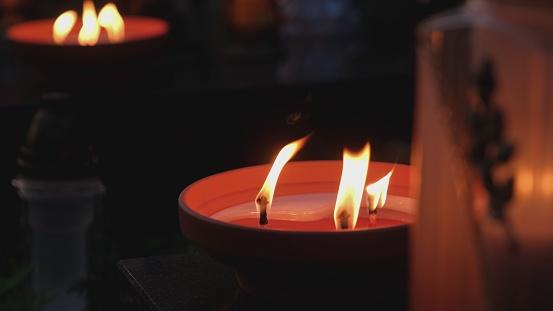Why have a non-religious funeral?
If a person is nonbeliever, it somehow seems unfitting to mark the end of their life with a religious funeral and that is one of the main reasons why loved ones seek an alternative. But in fact, all kinds of people opt for a non-religious funeral. They may be atheists, or agnostic, or hold spiritual beliefs that aren’t reflected in any traditional religion, or it could be that those left behind aren’t sure of what kind of ceremony their loved one wanted.
There are many ways to say goodbye to those we love, and one is a non-religious funeral often called a humanist funeral. This is a ceremony that mostly focuses on the person and their achievements, celebrating their life, reminiscing about their character and sharing stories about them. A non-religious ceremony may not include a priest, prayers and hymns but it can still be a dignified and emotional way of saying farewell.
Where can you have a non-religious funeral?
The short answer is anywhere. Indeed the body may not even be present but generally there’ll be a ceremony at a crematorium or cemetery chapel, a natural burial site or in a non-religious venue such as a parish hall or hotel.
Other venues may include:
- A park
- On a boat
- A museum
- A restaurant
- A botanical garden
- The beach
- Someone’s home
What does a non-religious funeral involve?
Often the person conducting the non-religious ceremony is someone called a celebrant. This is an individual trained to lead the proceedings and ensure that everything runs smoothly. Loved ones may want to do everything themselves, however often the task is overwhelming. A humanist service conducted by a celebrant allows loved ones the chance to offer their own tributes, reflections, poems and thoughts but with an ‘official’ figure bringing everything together.
Celebrants are familiar with cremation and burial procedures and will guide you through the whole process of arranging a funeral ceremony. They’ll work with those closest to the deceased to ensure that the funeral captures the essence of the person, their life and personality. They will also liaise with the funeral home on matters such as order of service, music and a video link up.
They’ll discuss how the funeral can be personalised and ways in which you can realise any special requests made by the person who has died. However, as we’ve already explained, a celebrant isn’t necessary. You can choose whoever you wish to conduct the proceedings.
A non-religious funeral can pretty much take the shape of a traditional funeral with songs, readings and burial or cremation but again, it’s all up to the individuals involved. Families may have had specific instructions left by the deceased about the ceremony for example, or they may want to do something memorably offbeat.
Whatever shape your non-religious funeral takes, at Middleton’s Funeral Services we are here to help make it happen. If you would like to know more then please don’t hesitate to contact us or head to our Non-religious services page to find out more.



Comments are closed.